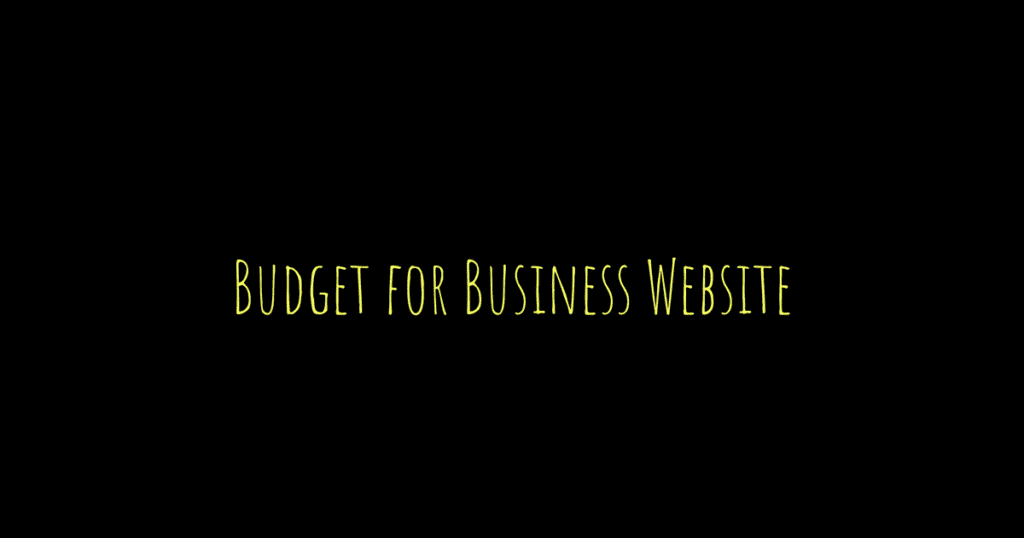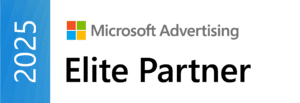When budgeting for a business website, several initial and ongoing costs must be considered. Starting with the domain name, prices range from $0.99 to $60 per year, followed by website hosting which can vary between $10 to $300 monthly depending on traffic needs. An SSL certificate is crucial for secure transactions and may cost anywhere from free to $1,500 annually. Design costs typically fall between $2,000 and $15,000 based on complexity. Ongoing expenses include maintenance fees of about $50 to $200 a month and recommended SEO spending of 5-10% of gross revenue. Overall, creating an effective online presence requires careful planning and investment.
1. Understanding Initial Setup Costs

When budgeting for a business website, it’s crucial to understand the initial setup costs involved. The first expense is the domain name, which typically ranges from $0.99 to $60 per year. This is your website’s online address, and prices can vary based on the domain registrar and the popularity of the domain extension you choose. Next is website hosting, which can cost between $10 and $300 per month. The type of hosting you select will depend on your expected traffic; for instance, shared hosting is affordable at $10 to $20 a month, suitable for small traffic, while VPS hosting costs between $20 and $60 for medium traffic, and dedicated hosting can range from $80 to $300 for high-traffic sites.
Another important aspect is the SSL certificate, which secures the data exchanged between your website and its visitors. This can cost anywhere from $0 to $1,500 annually, especially for e-commerce sites where security is paramount. Design costs also play a significant role in initial budgeting. Depending on your website’s complexity, design expenses can range from $2,000 for a basic site to as much as $15,000 for advanced, enterprise-level designs. A simple website may only require $2,000 to $5,000, while a more complex site could cost between $5,000 and $10,000.
Understanding these initial costs will help you create a more accurate budget for your business website.
| Cost Item | Cost Range | Notes |
|---|---|---|
| Domain Name | $0.99 – $60 per year | Your online address; prices vary by registrar. |
| Website Hosting | $10 – $300 per month | Depends on hosting type: Shared ($10-$20), VPS ($20-$60), Dedicated ($80-$300). |
| SSL Certificate | $0 – $1,500 per year | Secures data between your website and visitors. |
| Design Costs | $2,000 – $15,000 | Varies by complexity: Basic ($2,000-$5,000), Intermediate ($5,000-$10,000), Advanced ($10,000-$15,000). |
| Functionality Features | $5,000 – $10,000 | Includes e-commerce capabilities. |
| Content Management System (CMS) | $3,000 – $10,000 | Allows easy content updates. |
| Number of Pages | $1,000 – $10,000 | Pricing varies by pages: 1-10 ($1,000-$3,000), 11-75 ($3,000-$6,000), 75+ ($6,000-$10,000). |
2. Breakdown of Development Costs
When budgeting for a business website, development costs play a significant role. First, consider functionality features, which can range from $5,000 to $10,000. This is crucial if you want capabilities like e-commerce or additional features such as payment systems. Next, a Content Management System (CMS) is vital for easily managing content without needing coding skills, costing between $3,000 and $10,000.
The number of pages on your site also affects costs. A site with 1 to 10 pages might cost $1,000 to $3,000, while a larger site with up to 150 pages can push costs to $6,000 or even $10,000. For instance, if you anticipate needing 50 pages, you should budget around $4,000 to $6,000.
Overall, development costs can add up quickly, so it’s important to clearly outline your website’s needs and features in advance. This will help prevent unexpected expenses and ensure you allocate a realistic budget for the development process.
- Domain registration fees
- Hosting service charges
- Website design costs
- Development framework expenses
- Content creation and photography
- SEO optimization fees
- E-commerce setup costs
- Security features implementation
- Maintenance and update costs
3. Exploring Ongoing Costs
Ongoing costs for maintaining a business website are crucial for ensuring its functionality and security. One of the primary expenses is maintenance, which typically ranges from $50 to $200 per month. This cost covers regular updates to software and plugins, as well as essential security patches to protect your website from vulnerabilities. Additionally, implementing a robust backup solution is vital, with prices varying from $5 to $50 monthly depending on how often you back up your data and the storage capacity needed.
Another significant ongoing cost is SEO and marketing. It’s recommended that businesses allocate about 5-10% of their gross revenue for marketing efforts, which should include a strong online presence. For instance, if your gross revenue is $500,000, you might set aside $25,000 to $50,000 for marketing, ensuring that your website remains relevant and effective in attracting customers.
These ongoing costs are essential when budgeting for a business website, as they contribute to the overall health and visibility of your online presence.
4. Total Budgeting Guidelines
When planning your budget for a business website, it’s crucial to understand that the typical costs can range dramatically from $1,000 to $48,000 or even higher. This variability depends on the features and complexities you want to incorporate. A good guideline is to allocate about 50% of your marketing budget to your web presence. For instance, if your gross revenue is $9,000,000, and you set aside 5% for marketing, that gives you a budget of $450,000. From this, you might decide to spend around $150,000 on your website, allowing for a solid online presence.
Additionally, consider the ongoing costs. Maintenance, backups, and SEO should be part of your annual budget. Regular updates are essential to keep your site secure and functioning smoothly. A general suggestion is to earmark 5-10% of your gross revenue for SEO and marketing efforts, ensuring your website attracts and retains visitors effectively. By planning your budget around these guidelines, you can create a realistic financial framework that supports your business goals.
5. DIY vs. Professional Services
When deciding how to build your business website, one of the first choices is whether to go the DIY route or hire professional services. DIY website builders, like Wix or Squarespace, can cost as little as $37 a month. These platforms are user-friendly and ideal for simple sites without advanced features. However, they may not offer the flexibility or functionality that growing businesses require.
On the other hand, hiring a web design agency typically ranges from $2,000 to $5,000 for a basic site. This option provides customized solutions tailored to your brand and business needs. Professional designers also bring expertise in areas like SEO and user experience, which can significantly enhance your website’s effectiveness.
For example, if you’re a local bakery looking to attract more customers, a professional can create a visually appealing site that showcases your products and integrates online ordering. In contrast, a DIY site might lack the polished look and essential e-commerce features that could set you apart from competitors.
Ultimately, your choice should reflect your budget, your technical skills, and your business goals.
6. Final Thoughts on Budgeting for Your Website
Budgeting for a business website requires careful consideration of various factors. First, think about your business goals and the audience you want to reach. A clear understanding of these elements will help you determine the necessary features and functionalities. For example, if you plan to sell products online, investing in e-commerce capabilities is essential. Next, weigh the pros and cons of DIY website builders versus hiring professional services. While DIY options may save money, they often lack customization and advanced features. On the other hand, professional web design can provide a tailored solution but comes with higher costs. It’s also crucial to view your website as an ongoing investment. Allocate funds not just for the initial setup but also for maintenance, updates, and marketing efforts. Your website should evolve with your business needs, making regular budget reviews necessary. Overall, balancing quality, functionality, and cost will lead to a successful online presence.
Frequently Asked Questions
1. What are the main costs to consider when building a business website?
When building a business website, consider costs like domain name registration, web hosting, design and development fees, content creation, and ongoing maintenance.
2. Do I need a professional designer for my website?
While you can use website builders, hiring a professional designer can ensure your site looks better, functions well, and meets your business needs.
3. How important is it to have a mobile-friendly website?
Having a mobile-friendly website is crucial because many users access sites on their phones, and search engines favor mobile-optimized sites.
4. What role does content quality play in my website budget?
High-quality content is essential, as it helps engage visitors, boosts SEO, and improves your website’s overall effectiveness, influencing your budget.
5. Are there ongoing costs after my website is live?
Yes, ongoing costs can include hosting fees, domain renewal, content updates, SEO efforts, and website security measures.
TL;DR Budgeting for a business website involves initial setup costs like domain names ($0.99 – $60/year), hosting ($10 – $300/month), SSL certificates ($0 – $1,500/year), and design costs ($2,000 – $15,000). Development costs include functionality features ($5,000 – $10,000), CMS ($3,000 – $10,000), and page counts ($1,000 – $10,000). Ongoing expenses for maintenance, backups, and marketing should also be considered. Typical costs range from $1,000 to $48,000. Decide between DIY options or hiring professionals based on your needs, keeping in mind that websites are ongoing investments.



